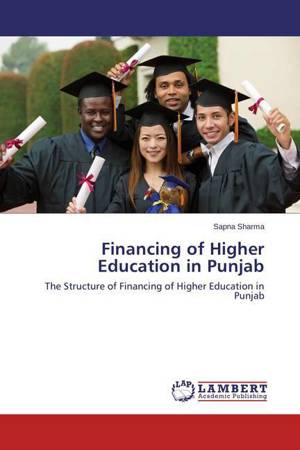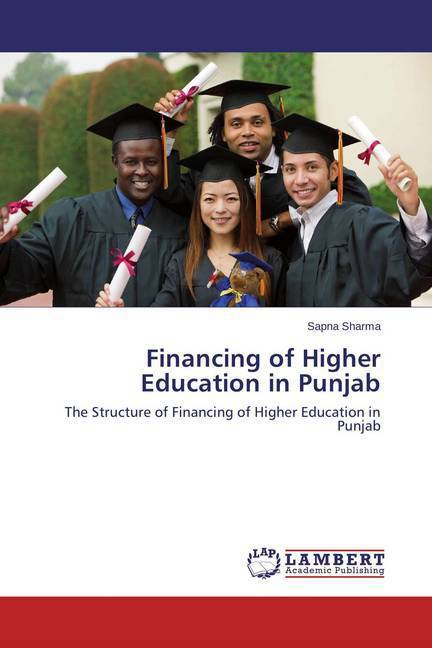
- Afhalen na 1 uur in een winkel met voorraad
- Gratis thuislevering in België vanaf € 30
- Ruim aanbod met 7 miljoen producten
- Afhalen na 1 uur in een winkel met voorraad
- Gratis thuislevering in België vanaf € 30
- Ruim aanbod met 7 miljoen producten
Zoeken
Financing of Higher Education in Punjab
The Structure of Financing of Higher Education in Punjab
Sapna Sharma
Paperback | Engels
€ 38,95
+ 77 punten
Omschrijving
This work deals with the financing structure of professional higher education of Punjab. From the study, it becomes clear that the financing practices of higher education of the state need serious attention. The financing of higher education has been a complicated problem due to theoretical and practical problems in Punjab and India as well particularly during post- economic reforms period, when more than 89 per cent of the professional education of the state were under private ownership. It has been largely a state funded activity with about three-quarters of the total expenditure being borne by government. The share of non-government sources such as fees and voluntary contributions have been declining. At the same time, the need of higher education has been growing rapidly. It is being increasingly realized that public budgets cannot adequately fund higher education, particularly when sectors of mass education are starved of even bare needs. The Punjab state has spending less on education from public resources. Per student expenditure on education at real prices has registered negative growth during the last decades. Thus Punjab is yet to ready for privatization.
Specificaties
Betrokkenen
- Auteur(s):
- Uitgeverij:
Inhoud
- Aantal bladzijden:
- 72
- Taal:
- Engels
Eigenschappen
- Productcode (EAN):
- 9783659753640
- Verschijningsdatum:
- 8/07/2015
- Uitvoering:
- Paperback
- Afmetingen:
- 150 mm x 220 mm
- Gewicht:
- 118 g

Alleen bij Standaard Boekhandel
+ 77 punten op je klantenkaart van Standaard Boekhandel
Beoordelingen
We publiceren alleen reviews die voldoen aan de voorwaarden voor reviews. Bekijk onze voorwaarden voor reviews.







